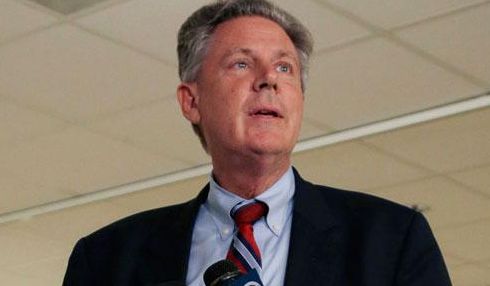Rep. Frank Pallone: Internet is Broken
Cites Capitol insurrection as evidence

The smarter way to stay on top of the multichannel video marketplace. Sign up below.
You are now subscribed
Your newsletter sign-up was successful
Rep. Frank Pallone (D-N.J.), chairman of the powerful House Energy & Commerce Committee, said that the internet is "broken" and that it is one of Congress' priorities to fix it.
He said another priority is restoring network neutrality rules eliminated by the Republican FCC.
Pallone was speaking at the virtual INCOMPAS policy summit.
On the issue of Sec. 230, which provides social media and other Web sites immunity from civil liability for most third-party content, Pallone said that while many are arguing that amending the section with "break the internet," he said the internet is already broken--citing the Capitol--insurrection, and needs fixing. "We now know that not only were platforms hosting content that led to this insurrection, but they were promoting it in many instances," he said, adding: "That must stop."
Also Read: Senate Democrats Target Sec. 230
Pallone said Sec. 230 reform will need to be "thoughtful" to avoid unintended consequences, but that platforms must be incentivized to "reduce disinformation and conspiratorial content" as well as to promote online civil rights.
On net neutrality, he said restoring that was more than just the return of rules against blocking, throttling and paid prioritization. It was about restoring the FCC's authority to regulate internet access.
The smarter way to stay on top of the multichannel video marketplace. Sign up below.
"By repealing net neutrality, the Trump FCC abdicated the FCC’s authority over this essential service," he said. "That’s not good for consumers or small businesses, for economic production, or for free speech," he said, adding: "This wrong must be righted."
A bitterly divided FCC--current Democratic Acting chair Jessica Rosenworcel strongly dissented--voted in December 2017 to approve the Restoring Internet Freedom (RIF) order. It eliminated network neutrality rules, including the internet conduct standard by which the FCC could review conduct not prohibited by those rules--like zero rating plans--but that might adversely affect internet openness and access to content.
The RIF order reclassified ISPs, wired and wireless, as non-common carriers (no longer subject to Title II-based regs), and deeded most of the internet policing functions to the Federal Trade Commission or Justice Department.
The item restored the FTC's authority over broadband regulation and adopted a transparency rule that requires ISPs to let the government and Web users know how they are managing their networks and what business practices they are using, which the FTC could enforce if those were unfair or deceptive or anticompetitive, and the Justice Department could enforce if they violated antitrust laws.
The FCC also asserted the ability to preempt state or local attempts to create their own net neutrality laws or regulations, an assertion currently being tested in court via ISPs challenge to a tough California net neutrality law that had been held in abeyance pending the resolution of that court test.
The Trump Administration had also challenged the California law, but the Biden Administration this week dropped that challenge,
Both supporters and opponents of net neutrality rules have called on Congress to step in to clarify what the FCC's authority is over internet access to end the two-decade cycle of legal challenges and rules/no rules outcomes that has hinged on which party is in control of the White House and thus the FCC.
Contributing editor John Eggerton has been an editor and/or writer on media regulation, legislation and policy for over four decades, including covering the FCC, FTC, Congress, the major media trade associations, and the federal courts. In addition to Multichannel News and Broadcasting + Cable, his work has appeared in Radio World, TV Technology, TV Fax, This Week in Consumer Electronics, Variety and the Encyclopedia Britannica.

